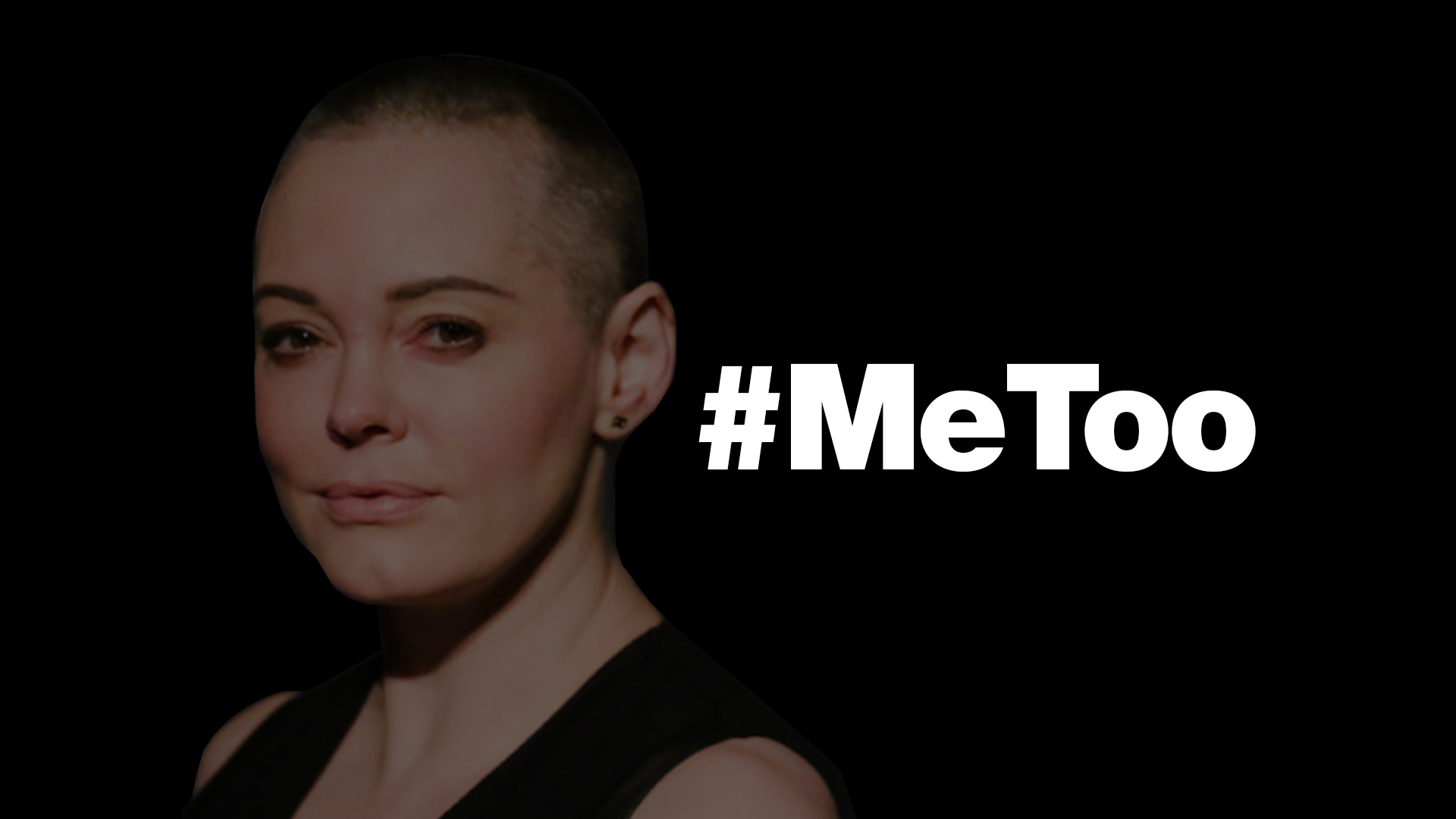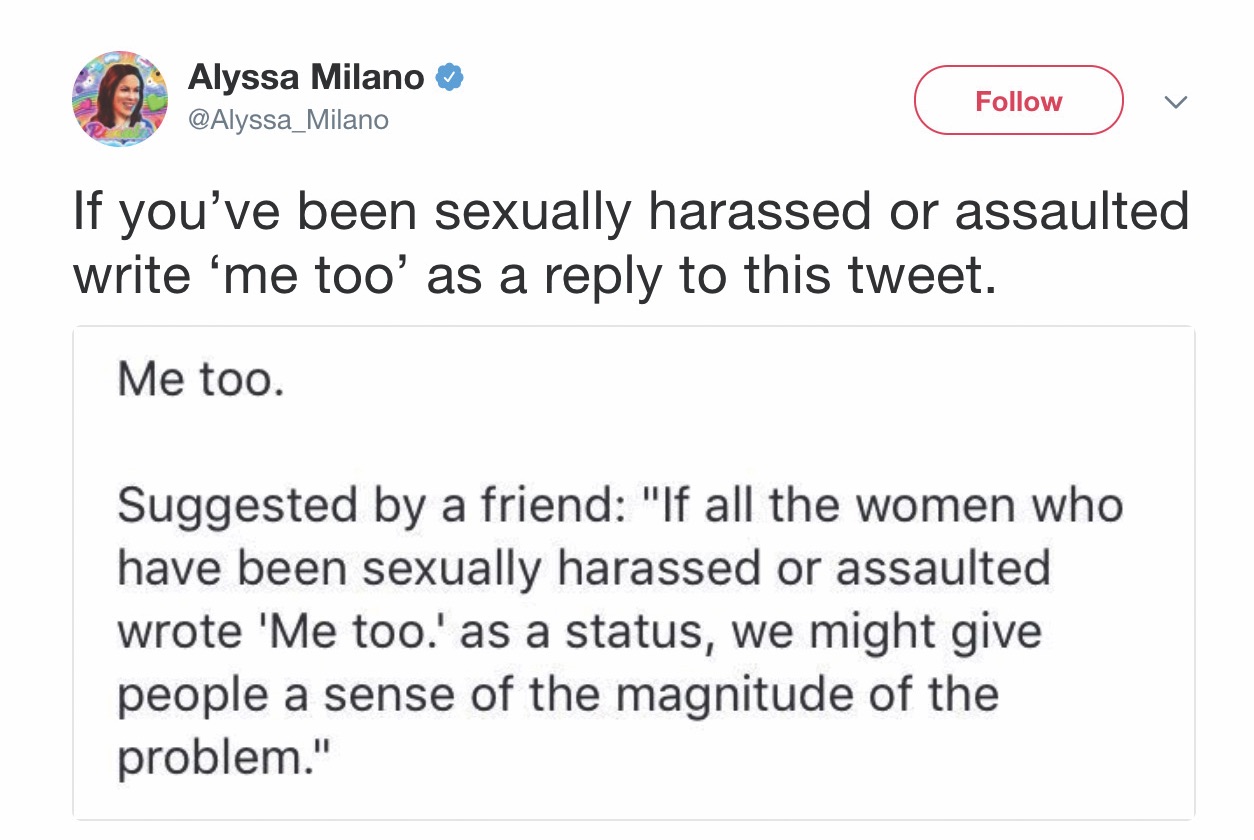
One of the quirks of publishing a weekly paper is that the news moves so fast that by the time you’re on the newsstand, everything can shift. For this issue, we were preparing a cover story on “the complicity of silence” around the Harvey Weinstein sex scandal.
And then Sunday happened.

Actress Alyssa Milano posted on Twitter the words “Me too” and suggested that women who have faced sexual assault and harassment post “Me too” as a status. Well, within 24 hours, the words were repeated millions of times. Her tweet had more than 40,000 comments. On Facebook, more than 8.7 million users were posting or “talking” about it.
By the time we arrived at the office on Monday, the floodgates had opened. Instead of a complicity of silence, we were seeing the reverse — millions of women rising up and saying, Enough. No more silence. No more abuse. No more complicity.
A movement was unfolding before our eyes.
Our coverage shifted to reflect this fast-moving development. The story became larger than Harvey Weinstein and even larger than Hollywood. And it’s not new. Women are sharing incidents from their high school years, from college, from jobs. Women rabbis wrote about being harassed by colleagues and by congregants.
A movement was unfolding before our eyes.
First, we had to cover the event that precipitated these floodgates and explain how we got here. Senior writer Danielle Berrin does just that in her cover story on the Weinstein sex scandal and its many repercussions. We also asked Rabbi Jill Berkson Zimmerman to share her thoughts on the #MeToo movement that has exploded across social media.
“The ocean of tears needs to evoke a sea change,” Zimmerman writes.
Will a sea change happen? Or will this movement evaporate until the next scandal or hurricane or terrorist attack comes along? In the coming weeks and months, the Journal will continue to keep an eye on this story and examine the role of our own community.
From Israel, one of our new contributors, Dahlia Scheindlin, asks if there’s a “Jewish answer” to the disease of sexual harassment. Her answer may surprise you.
While the Weinstein scandal and the #MeToo movement were reverberating last week, the news kept churning.
Senior writer Eitan Arom reports on the devastating wildfires in Northern California and how the Jewish community is responding to the destruction at URJ Camp Newman. On our debate page, two experts argue the merits of President Donald Trump’s changes to the Affordable Care Act.
On a more uplifting note, Kelly Hartog covers a synagogue in Pico-Robertson that invites homeless people to engage with one another over a meal. They’ve been doing it every month for the past 13 years.
From Portland, Ore., Alicia Jo Rabins writes about how teaching the Hebrew alphabet connects her to her ancestors, while from Washington, D.C., Joshua Horwitz tells us why he’s not letting cynicism get in the way of his gun control activism.
Can Judaism help us regain our balance in a crazy world that is moving too fast? Rabbi Bradley Shavit Artson writes about the special energy that greets us after a long month of Jewish holidays, and how that energy can help us attain that balance. Arianna Huffington shares her own ideas on the subject in our back-page Q-and-A.
And speaking of balance, this week we are trying something new — an exchange between denominations. Orthodox Rabbi Shlomo Einhorn and Reform Rabbi Laura Geller engage in an email discussion around the “true meaning of tikkun olam.” The idea for this page came when someone said, “Instead of preaching civility, why don’t we give an example?”
Can Judaism help us regain our balance in a crazy world that is moving too fast?
Of course, we can’t forget food. In addition to a full serving of the arts, we have Yamit’s Table. Just as she was passionate last week about egg salad, this week Yamit Behar Wood devotes her culinary passion to the miracle of the phyllo dough. It seems as if every culinary tradition in the world has its own version of phyllo dough stuffed with unique flavors and ingredients. In this issue, Yamit shares a Bulgarian recipe from her childhood, the Spinach Banitsa.
In her own words: “Nothing beats a fresh, hot, crisp banitsa right out of the oven. NOTHING!”
Yes, even in a world where darkness strikes, there’s still room to emote over a good banitsa.
Shabbat shalom.





















 More news and opinions than at a Shabbat dinner, right in your inbox.
More news and opinions than at a Shabbat dinner, right in your inbox.